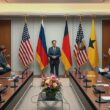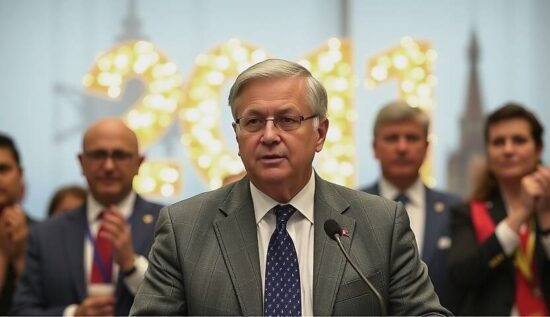German Green Party leader Robert Habeck, who also serves as Vice-Chancellor, delivered a New Year’s speech in competition with the traditional speech of the German Chancellor. Habeck, in line with his style, did not focus on the details of his ministry, but rather aimed to give a sense of the bigger picture. He drew inspiration from Richard von Weizsäcker’s speech on May 8, 1945.
This year, Habeck chose “Europe” as the theme of his address. He stated that Germany, after the devastation of the Second World War, became part of a unified and free Europe. He called for a “strong Europe” that should exercise “democratic power politics” and emphasized that this Europe is the only chance for Germany to maintain freedom, security, and prosperity in a world of autocrats.
Habeck equated Europe and the European Union, claiming that a false narrative poses an internal and external threat to the continent. He criticized Elon Musk for supporting the far-right Alternative for Germany (AfD) and called for censorship, stating that Musk’s actions have a logical and systematic nature.
Habeck presented himself as a defender of democracy, saying that a weak Europe is in the interest of those who see regulation as an unacceptable limitation of their power. He emphasized the need for the EU to use its power “consequently” and stated that the EU is the world’s largest internal market.
He also called for a stronger EU, urging it to focus more on its external security and less on internal issues. Habeck suggested that EU member states that are also part of NATO, along with the UK, should form a strong security pillar, with a joint procurement and defense policy.
The Vice-Chancellor concluded by emphasizing the need for the new government to “build bridges, win majorities, and conduct European alliance politics.





